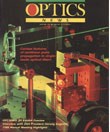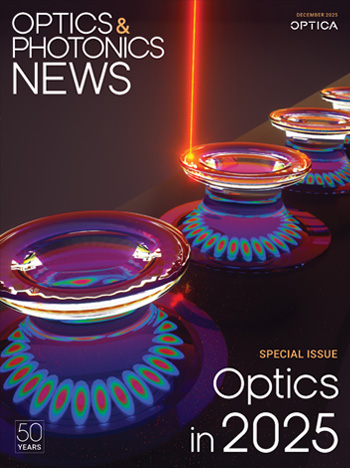
January, 1989 Issue
Feature Articles
The importance of implementing the Federal Technology Transfer Act
Over the last 20 years, in several critical industries, there has been a substantial decline in the technological lead the United States holds over other countries. This erosion of the United States' technological advantage may be due to a reduction in the research and development activities of many U.S. companies. As U.S. companies concentrate on increased quarterly earnings, it appears, in many instances, that these increased earnings have occurred at the expense of R&D. Since research and development leads to long term benefits rather than immediate profits, the value of the corporate R&D budget is often overlooked.
by Jacob N. ErlichSpectroscopic notation for the energy levels of helium and neon
Spectroscopic notation traditionally places the electron configuration first, followed by the term symbol in some coupling scheme.
by Leon J. RadziemskiInterferometer standardization assessed
Major manufacturers of phase measuring interferometers joined Standards Committee members during the OSA Annual Meeting in Santa Clara to discuss standardization among the various instruments. As representatives from Breault Research Organization, Phase Shift Technologies, WYKO, and ZYGO described the similarities and differences in their instruments and responded to questions, members were surprised to learn of the relative similarity of data handling that already exists among the instruments. The committee was also pleased to learn that the companies are willing to work with members in furthering standardization and in writing a handbook on optical figure measurement.
by Robert E. ParksCurious features of nonlinear pulse propagation in single-mode optical fibers
Single-mode optical fibers have been found to be an almost ideal medium for studying and using nonlinear optical phenomena, and such studies have uncovered numerous curious features. Despite steady progress in identifying new curious features, however, the current number of such features remains roughly constant, because of steady progress in converting curious features into simple features.
by W.J. Tomlinson

![Manual probe system with needles for test of semiconductor on silicon wafer. [A. Morozov / Getty]](https://opnmedia.blob.core.windows.net/$web/opn/media/images/articles/2025/1125/departments/202511-cover-web.jpg?ext=.jpg)
![Researcher Clara Saraceno in the lab. [Image by Carsten Behler Photography]](https://opnmedia.blob.core.windows.net/$web/opn/media/images/articles/2025/1025/departments/202510-cover-web.jpg?ext=.jpg)
